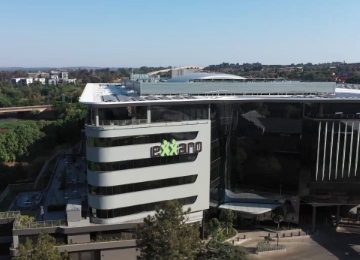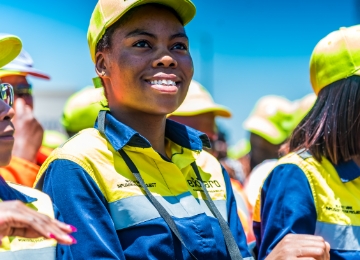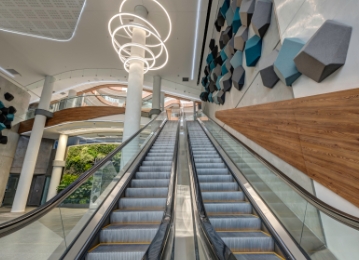EXXARO'S BELFAST IMPLEMENTATION PROJECT WAS COMPLETED WITH REHABILITATION OF AN ADJACENT WETLAND SYSTEM ON 14 JULY 2020 AT A COST OF AT LEAST R20 MILLION.
Expansion of our Belfast operation was allowed by the DHS and DWAS on condition that we rehabilitate the natural environment in terms of a "net gain" approach.
We had to mitigate any impacts of Belfast's expansion by enhancing the functioning and integrity of identified wetland ecosystems impacted by agriculture, disturbed water flow, alien vegetation, artificial drainage channels, dams and roads.
Rehabilitation interventions included construction of engineered solutions such as concrete and HDPE liner check walls, concrete drop inlet weirs and backfilling of the main channel (the Klein Komati River) to re-establish a channelled valley-bottom wetland, among others. Our strategy achieved a net gain of approximately 1.6 hectare (ha) equivalents within the landscape. It will be used as the base case for future wetland rehabilitation projects by Exxaro and lessons learnt will be shared at various forums to inform our peers.
BIODIVERSITY RELOCATION
We relocated four protected plant species at Belfast in 2018: Brunsvigia radulosa, Dierama cf pauciflorum, Dierama sp and Watsonia cf pulchra. On a site visit in March 2020, an ecologist noted that the plants had recovered.
Khadia carolinensis (threatened species on the International Union for Conservation of Nature Red List) and Harpactira hamiltoni (baboon spiders) will be relocated to a suitable site as mining progresses at Belfast. We applied to the Mpumalanga Tourism and Parks Agency for a permit to relocate the Khadia and Harpactira in December 2020. Further screening is planned for 2021 to verify and update data collected in 2018 about the number and type of species to be relocated.


